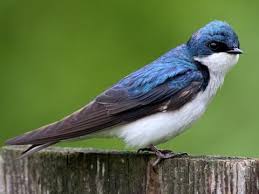
Yesterday we looked at Robert Bly’s book, News of the Universe, which — in terms of poetry — posited that man does best when he interprets himself as another animal subject to the same natural rules as all other animals.
Today, in The New York Times opinion section, columnist Thomas L. Friedman picked up on that theme in his piece called “Is Trump Challenging Mother Nature to a Duel?”
Basically it applies Bly’s argument to Covid-19 and those who foolishly think a rogue piece of the natural world (read: a virus) is political and therefore subject to the usual reindeer games certain politicians and their followers play.
Uh, no.
Here’s a key excerpt:
“Let’s remember, Mother Nature is just chemistry, biology and physics, and the engine that drives her is one thing: natural selection. That is the quest of all organisms, to survive and thrive in some ecological niche as they engage in the struggle to pass on their DNA to their next generation and not end up among those that get returned to the manufacturer and decommissioned.
“And that’s what viruses do, too: try to survive and replicate. The coronavirus, for instance, co-evolved with bats in the wild. But it apparently jumped to humans when someone ate an infected mammal in Wuhan, China. When it did, it made a warm home in human cells and tissues in ways that can harm or kill us. Once that happened, the coronavirus became just another one of Mother Nature’s fastballs that she throws at us to see who’s the fittest.
“Mother Nature is not only all powerful, she’s also unfeeling. Unlike that merciful God that most humans worship, Mother Nature doesn’t keep score. She can inflict her virus on your grandmother on Monday and blow down your house with a tornado on Wednesday and come back on Friday and flood your basement. She can hit you in the spring, give you a warm hug in summer and hammer you in the fall.
“As such, telling her that you’re fed up with being locked down — that it’s enough already! — doesn’t actually register with her.
“All that registers, all that she rewards, is one thing: adaptation. She doesn’t reward the richest or the strongest or the smartest of the species. She rewards the most adaptive. They get to pass along their DNA.
“And in a pandemic, that means she rewards a president, governor, mayor or citizen who, first and foremost, respects her power. If you don’t respect her viruses, wildfires, droughts, hurricanes, floods and so on, she will hurt you or your neighbors or your citizens.
“President Trump doesn’t respect Mother Nature, because he measures everything in terms of money and markets. He has no feel for natural systems, except golf courses, where he developed the illusion that he could tame nature, even building man-made waterfalls.
“Mother Nature also rewards leaders whose adaptive responses are the most thought-through and coordinated. She evolved her viruses to be expert at finding any weakness in your personal or communal immune system. So, if your family or community is not utterly coordinated in its response to her viruses, they will find the tiniest cracks and make you pay.
“Also, because Mother Nature is entirely made up of chemistry, biology and physics, she rewards only adaptation strategies grounded in those same raw materials. If your adaptation strategy is grounded instead in ideology or election-year politics, she will mercilessly expose that.”
Yesterday I quoted a excerpt about the 1851 Crystal Palace from Bly’s book. With its steel beams and glass walls containing full-grown trees, it stood as a metaphor for man conquering and subjugating of nature, as if it were his birthright to do so. And today, Friedman echoes that metaphor with his own: President Trump’s foolish belief that all of nature is like a golf course, something that can be tamed and used for one’s own profit and designs.
Friedman exposes that folly with these words:
“Basically China, Germany, South Korea, Sweden and many others have all been pursuing different strategies for sustainably and maximally saving lives and livelihoods. It is too soon to say that any of them has found the perfect strategy.
“But what it’s not too soon to say is that they are all reopening in ways that respect Mother Nature, appreciate the need for coordination and are grounded in science. So they’re still requiring some degree of wearing of masks in public, practicing social distancing, restricting the number of people who gather in any enclosed space, protecting the most vulnerable and limiting further spread by massive testing, tracing and quarantining to contain inevitable new outbreaks — until they get herd immunity.
“America, by contrast, is a mess. In some places you see reopenings that respect Mother Nature’s power, are coordinated and grounded in science, and in other places you see crowded restaurants or a gym owner defying his governor’s guidelines as cheering demonstrators waive signs that read “My freedom doesn’t end where your fear begins.”
“The people making those signs, and the morons on Fox cheering them on, don’t get it. We’re not up against each other. We’re all up against Mother Nature.
“We need to reopen and we need to adapt, but in ways that honor Mother Nature’s logic, not in ways that court a second wave — not in ways that challenge Mother Nature to a duel. That is not smart. Because she hasn’t lost a duel in 4.5 billion years.”

 God has this little addiction. It’s called irony. Like O. Henry (only with more staying power), She can’t help herself when it comes to trick endings, little twists, wry surprises. Big G, they call her. Big “Gotcha!”
God has this little addiction. It’s called irony. Like O. Henry (only with more staying power), She can’t help herself when it comes to trick endings, little twists, wry surprises. Big G, they call her. Big “Gotcha!”



